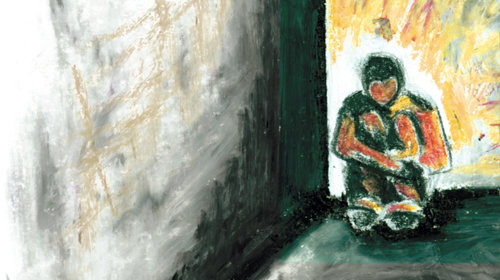Groundbreaking Senate Hearing Shines a Light on the School-to-Prison Pipeline


Tomorrow, the Senate Judiciary Subcommittee on the Constitution, Civil Rights and Human Rights will hold a landmark hearing entitled, Ending the School-to-Prison Pipeline. It is the first time a congressional panel will look at this disturbing national trend where children are pushed out of public schools and into the juvenile and criminal justice systems because of an overreliance on punitive school discipline policies.
Many have linked the growth of the pipeline to zero-tolerance policies that removed educators’ discretion over how to properly respond to student misbehavior. The unintended effects of severe school discipline, often for minor infractions, include further alienation from the school setting, decreased graduation rates, and increased interaction with the criminal justice system.
Take Edward Ward, a youth organizer at Blocks Together in Chicago, who will be testifying at tomorrow’s hearing. He has said that because of his school’s zero-tolerance policies, he saw kids being suspended for just cursing, talking on cellphones, and talking loud in the school hallways. He was afraid to simply speak in his school’s hallways for fear of being kicked out. Disruptive behavior warrants a response, but suspension, which takes kids away from learning time and out of the classrooms, is not the answer. Ward now works to end these policies, which only perpetuate the criminalization of youth.
Data shows the burden of this trend falls disproportionately on students of color and students with disabilities, who are punished more harshly and more frequently for the same infractions other kids engage in. According to national data from the Department of Education, African American students are 3 1/2 times more likely than their white peers to be suspended—and while they represented just 18 percent of the students in the sample, they accounted for 39 percent of expulsions. Of the total students arrested or referred to law enforcement nationally, 70 percent were Latino or African American. A groundbreaking study in Texas also found racial disparities in disciplinary decision.
Students with disabilities are also subjected to overly punitive discipline at far higher rates than their peers. In fact, they are more than twice as likely to receive one or more out-of-school suspensions. And while they were only 12 percent of the students sampled by the Department of Education in their most recent data collection, they made up 70 percent of those subject to physical restraints. Both African American students and students with disabilities are also disproportionately subjected to the violent practice of corporal punishment.
In order to end the school-to-prison pipeline, federal reforms are critical. We urge the Senate to introduce new or companion legislation as well as support current proposals, including:
- The Positive Behavior for Safe and Effective Schools Act (H.R. 3165), which gives schools the tools they need to improve learning environments by allowing schools to dedicate Title I federal funds to the development of comprehensive positive behavior supports;
- The Ending Corporal Punishment in Schools Act (H.R. 3027), which bans the destructive use of physical punishment at public schools and private schools that serve children receiving federal funds;
- The Keeping All Students Safe Act (S. 2020), which prohibits the use of seclusion, mechanical and chemical restraint techniques, and physical restraints (with very limited exceptions) in schools;
- The Juvenile Justice Delinquency Prevention Act (JJDPA), which is the primary vehicle through which the federal government sets and enforces standards for state and local juvenile justice systems; and
- The Youth PROMISE Act (H.R. 2721), which builds upon evidence-based practices proven to reduce rates of violence and delinquency among at-risk youth and focuses on prevention practices instead of funneling more young people – overwhelmingly African American and Latino – into the juvenile and adult criminal justice systems.
We urge the Departments of Justice and Education to promptly release national guidance to our nation’s educational facilities on the use of punitive school discipline. We also encourage the Department of Education to collect additional data on all incidents of punitive school discipline in its future Civil Rights Data Collections (CRDC) and ensure schools comply with the CRDC’s mandatory collection.
Providing all students with equal access to quality education in a safe, supportive environment is one of the most important civil rights challenges facing the nation. We commend Chairman Dick Durbin and the Senate Judiciary Subcommittee for recognizing the seriousness of the punitive school discipline problem and holding this groundbreaking hearing. Finally, we must shine a light on these destructive practices and advance smarter, more effective policies that respond to disciplinary issues without losing sight of our educational goals.
Learn more about the school-to-prison pipeline: Sign up for breaking news alerts, follow us on Twitter, and like us on Facebook.
Stay informed
Sign up to be the first to hear about how to take action.
By completing this form, I agree to receive occasional emails per the terms of the ACLU's privacy statement.
By completing this form, I agree to receive occasional emails per the terms of the ACLU's privacy statement.

